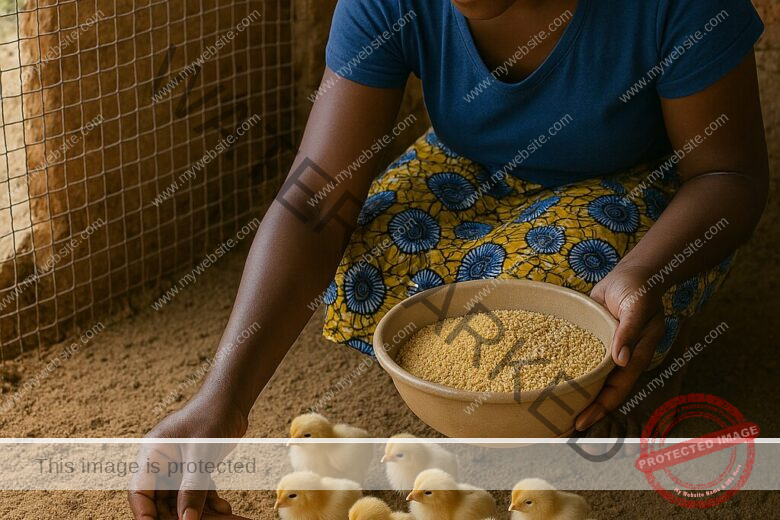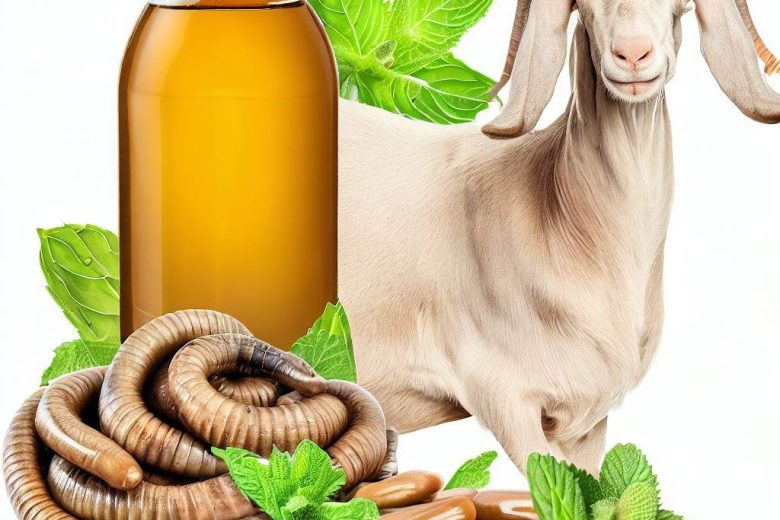Bee farming remains a green agribusiness in South Africa. South Africa is rich in bees and honey, and it has become necessary to start bee farming to supply the increasing demand for honey these days.
The steps involved in bee farming start with training, Source for funding, selecting and preparing the land, constructing or purchasing, getting necessary equipment, installing your beehive, getting your bees, stocking your bees, bee care, and wellbeing, and harvesting.
We will teach you how to start bee farming in South Africa and the steps necessary to harvest honey. Make sure you read to the end to get all the information you need.
How To Start Bee Farming In South Africa
If you are looking to start bee farming in South Africa and produce high-quality honey, then look no further than this place to read this highly informative and educative content.
Read Also: [Beginners Guide] How To Start Quail Farming In South Africa
Step 1: Be Trained
You don’t just start beekeeping without being trained. Beekeeping goes beyond just keeping bees; there are guidelines, steps, and other key skills that you will need to acquire.
That is why, if you want to start bee farming, you must first educate yourself and receive proper training so that you will have an encompassing knowledge of how to keep bees.
Read Also: [Beginners Guide] How To Start Snail Farming In South Africa
You can enroll as an apprentice in an established bee farm for a while so that you can have firsthand training with practical teachings on how to keep bees.
Step 2: Source for Funding
If you do not have the funds to start a bee farm, you must find a way to secure the funding. Because practically all of the equipment required for a beekeeping venture requires money.
You can seek funding from personal savings, angel investors, grants, and loans from friends and family as well as from banks and any other financial service organization.
Read Also: [Beginners Guide] How To Start Ostrich Farming In South Africa
However, if it is possible avoid getting loans only if there is no other alternative.
Also, before going about to source for funds, make sure you have prepared your business plan. This document contains all of the information structure, feasibility, and finance about your business.
Step 3: Selecting and Preparing Land
The location of your bee farm must receive plenty of sunlight so that the bees will enjoy five to six hours of direct sunlight per day.
To survive, bees must spend time in the shade. Ensure your bee farm is located in a location with a lot of trees or tall vegetation.
Read Also: How To Start Goat Farming Business In South Africa [Starter Kits]
Bees consume water daily. As a result, the site should be near a water source or in a region that receives a lot of dew and rain.
Bees create a lot of swarming noises that attract people’s attention. For this reason, avoid locating your bee farm in the heart of a residential area.
Make sure the fencing is in place before constructing your bee house. If you live near a residential area, make sure the bee farm is well-fenced in and hidden from any potential intruders.
Read Also: How To Start Pig Farming In South Africa [Step By Step Guide]
Step 4: Get the Required Permit and License
If you want to start bee farming in South Africa, you will require a permit and license from the government. First, you need to register with the Department of Agriculture by supplying certain documents and paying a fee. You can get these documents done online or through local authorities.
Step 5: Constructing Or Purchasing a Beehive,
You build or purchase a beehive. If you want bees to produce honey. A beehive is a small structure in which a good number of bees will be kept, fed, and cared for. Beehives are constructed by assembling hexagons to make one of shape, size, and length – adding some kind of comb or grids inside it can help the bees collect honey.
Read Also: How To Start a Profitable Poultry Farm In South Africa [Step By Step Guide]
The construction of the beehive must be simple to collect honey. Employ a skilled carpenter to build one for you. You can create your boxes if you can. Even better, you can buy pre-made beehives.
Step 6: Getting the Necessary Equipment
To carry out daily tasks on your bee farm, you will require a few pieces of equipment. These consist of your hives, as well as hive equipment like smokers and feeders, as well as protective apparel like beekeeping suits, and a water source.
Read Also: How To Start Fish Farming In South Africa {Beginners Guide PDF}
Step 7: Installing Your Beehive
You should install your beehive by following these guidelines because your bee farm needs a healthy environment:
- Steer clear of setting up your hives near a lot of insecticide usage,
- In a noisy or congested neighborhood that is too close to a road.
- Try to find some dry area; the swampy ground is terrible for your hives as well.
- Keep the hive away from a direct breeze since the bees will suffer because of it.
Note: so that you may move freely through without running into anything, leave adequate space in between the colonies.
Step 8: Getting Your Bees
The market offers a wide range of bee species. You can buy from a local bee breeder or apiary.
As an alternative, you can build your hive of bees for pollination by purchasing queens from other beekeepers.
If your bee farm is located in an area where bees already live, you can also get your bees by attracting them with honey placed in your beehive.
Step 9: Stocking Your Bees
Knowing when to populate your beehive is crucial. Your bees might suffer without food if you start the colony too early, and they won’t be able to produce much honey if you do so too late because you’ll have missed the main nectar flow.
A bee farm needs space for feeders, a steady supply of water, and sugar.
If you buy bees from a local apiary, you should place them in the selected hive by gently shaking the bees out of the package. Any bees still inside the packaging should be placed at the entrance of the beehive.
Step 10: Bee Care and Wellbeing
Visits your beehive for inspection regularly. Search for disease or parasite infestation symptoms or check to see if any other insects or pests are trying to get inside the hive.
The absence of hatchlings, distorted wings, weakened province, lost bars, observable hive creepy crawlies or wax moths on the brush, among other things, are some basic indications that something is wrong with your colony.
If you see any issues, such as an unusually high rate of disease or mortality, get in touch with your neighborhood extension office very away.
It is essential to provide enough food and water for the bees. Bees require an abundance of water and honey during the summer.
Step 11: Harvest
This is the happy stage when you get to gather the honey when it is prepared. A bee brush, an escape board or fume board, protective clothes, frames, and other items are needed when you want to harvest honey from the hives.
When collecting honey, make cautious to wear protective garments to shield yourself from getting severely stung.
How Much Does It Cost to Start Beekeeping In South Africa?
Starting an average size beekeeping venture in South Africa will cost you about R3,340 or more.
Do You Need A License To Keep Bees In South Africa?
You don’t need a license to keep bees on non-commercial or agricultural property.
How Do I Start A Bee Business In South Africa?
You can start a bee business in South Africa by following the step below.
Step 1: Get beekeeping experience
Step 2: Get funding if necessary
Step 3: Select the ideal location for beekeeping
Step 4: Acquire necessary beekeeping tools
Step 5: Construct or purchase an already made beehive
Step 6: Install the beehive on the acquired location
Step 7: Populate your beehive
Step 8: Bee management
How Profitable Is Bee Farming?
Bee farming is profitable. Interestingly, honey sales are not the only means of making money, you can also use your bees for pollination services, among other beneficial services.
How Many Times A Year Do You Harvest Honey In South Africa?
It is possible to harvest honey 2 to 3 times a year in South Africa.
How Much Is A Beehive In South Africa?
A beehive will cost you about R 1,750 in South Africa.
How Do I Start A Bee Farm?
There are vital tips you need to know about bee farms. The steps are stated below
Step 1: Gain beekeeping experience
Step 2: Register your Bee Farm
Step 3: Obtain the Required License and Permit.
Step 4: Create a Business Plan
Step 5: Obtain the necessary funding
Step 6: Choose an ideal location for beekeeping
Step 7: Purchase the necessary beekeeping tools
Step 8: Build or buy a ready-made bee hive.
Step 9: Place the beehive in its new location.
Step 10: Fill your beehive with honey.
Step 11: Beekeeping
Can I Keep Bees In My Backyard In South Africa?
If you reside in South Africa, it is legal to keep bees in your backyard.
How Do I Register For Bee?
To register for bee farms or beekeeping, you should visit the local authorities in your state of residence or check their internet.
Is It Difficult To Start Beekeeping?
Beekeeping is not difficult, although it has its challenges. As you go about the beekeeping venture, you will notice that it is time-consuming, costly, physically demanding, and requires patience.
What Direction Should A Beehive Face In South Africa?
The ideal direction a beehive should face in South Africa is away from the prevailing winds.
If your beehive is in the northern hemisphere, face the entrance southward; if you’re in the southern hemisphere, face it northward.
How Much Is A Full Hive Of Bees?
A full beehive will cost you between $120-$200.
How Much Is A Bee Hive Worth?
A beehive worth is about $150 to $200 depending on the size and structure you want.
How Do You Start A Beehive From Scratch?
To start a beehive from scratch, you have to do the following.
Step 1: Place the bees in the brood box.
Step 1: Place the bees in the brood box.
Step 3: Put the Queen in Place
Step 4: Feed the Bees
Step 5: Complete the coupling
How Much Honey Does A Hive Have In South Africa?
A beehive in South Africa can house honey reaching 15 kg of honey per year.
Do You Need A License To Keep Bees?
You will need a license to keep the bee as stated in the bee-keeping laws of South Africa.
How many lands Do You Need For Bees?
In general, 1 to 2 acres of land is needed to keep bees, especially for commercial purposes.
Can You Make Money Keeping Bees?
You can make money keeping bees by raising starter bees or replacement bees to sell or working as a temporary beekeeper. You can also sell the honey produced by bees to interested consumers.
Can I Sell Honey From My Bees?
Yes, you can sell honey from your bees. This is the major reason why beekeeping or bee farms are established.
Do I Need Permission For A Beehive?
You will need permission for a beehive. However, it depends on the location of your beehive.
How Far Should A Beehive Be From A House?
A beehive should be at least 20 to 25 feet away from a house or residential area because of its buzzing noise and stinging feature.
How Much Honey Does A Hive Have In South Africa?
A beehive in South Africa typically has about 15kg of honey per year.
Is Bee Farming Profitable In South Africa
Bee farming is a profitable agribusiness to venture into in South Africa considering the high market prices and high demand for honey.
Free Beekeeping Training In South Africa
From time to time, different organizations organize free beekeeping training in South Africa aimed at training interested persons on how to keep and train bees for honey production and pollination purpose.
No fees are charged during this training and the duration s often between 2 to 3 days. However, mentoring, apprenticeship or advanced training may require you to pay some fee.
Beekeeping Laws In South Africa
Beekeeping laws in South Africa are designed to regulate beekeeping in the country. The by-law provision includes the following requirements.
- No one may keep bees on any property unless –
- That person has a permit authorizing that activity; and
- Every beehive is located –
- a minimum of five meters from any property boundary.
- a minimum of twenty meters from any building or public space that is used for habitation or the keeping of animals, poultry, or birds.
- the bees are housed in a certified beehive; and
- the beehive is –
- kept at a location that is inaccessible to kids and pets.
- kept constantly in the shade; and
- supplied with a water source five meters or less from the hive.
- No person may discard or deposit any trash, compost, grass trimmings, or manure within five meters of any beehive.
Bee Farming In South Africa Pdf
Bee Farming In South Africa PDF is a complete guide to beekeeping, beeswax production, hive construction, and honey production. The book contains a wealth of information on beekeeping and bee-related products including the queen bee and bee dances, honey extraction methods, and quilted box beekeeping with dimensions for drum hive construction in metric units.
How Much Honey Per Hive In South Africa
Each hive in South Africa normally has 15 kg of honey annually.
Honey Bee Farming In South Africa
Honey bee farming in South Africa is about how bees are raised and harvested in hives to produce honey. The honey produced by bees is used in many different ways such as baking, making drinks and cakes, desserts, gums, and candles.
Beekeeping Equipment
Bee equipment includes the following:
- Beehive
- Frames and foundation
- Smoker
- Hive tool
- Veil and gloves
- Protective clothing
- Feeders
Best Beekeeping Provinces In South Africa
The best provinces for beekeeping in South Africa are:
- Eastern Highveld.
- Eastern Province.
- Free State.
- KwaZulu-Natal.
- Northern Cape.
- Northern Transvaal.
- Southern Cape.
Conclusion
Most people regard bee farming as a difficult task, but the few farmers who took interest in the venture are making a profitable living. You can also join the few beekeepers in South Africa today making profits from this venture. Take the first step to read this material on how to start bee farming in South Africa, and then take the other step of being proactive.





One Reply to “How to Start Bee Farming in South Africa [Practical Guide]”